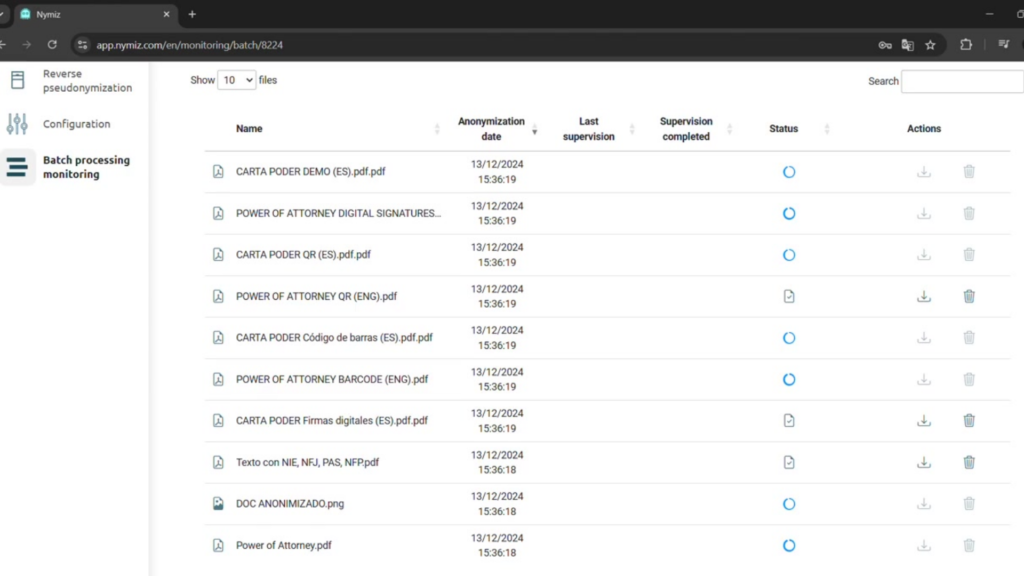In the legal sector, technology plays an increasingly critical role. With the growing adoption of software tools that automate legal processes, ensuring the privacy and accuracy of data used in testing has become a priority. This is where synthetic data emerges as a critical solution.
What is synthetic data and why is it relevant?
Synthetic data is artificially generated information that retains the statistical and structural characteristics of real data, but does not contain identifiable information. This makes it an ideal tool for:
- Legal software testing: It allows for validating systems without putting the privacy of real data at risk.
- AI model training: It helps train analysis and prediction tools, ensuring that legal applications are accurate and secure.
- Regulatory compliance: By not including real personal data, it facilitates compliance with data protection regulations such as the GDPR and CCPA, among others.
Benefits of using synthetic data in legal software testing
- Privacy assurance
Using real data in testing can compromise client privacy and violate data protection regulations. Synthetic data eliminates this risk by not containing sensitive information.
- Test reproducibility
Synthetic data allows test scenarios to be replicated consistently, ensuring that results are reliable and comparable
- Reduced costs and time
Generating synthetic data automates the creation of complex test scenarios, significantly reducing the time and costs associated with manual preparation.
- Simulation of complex cases
With synthetic data, it is possible to create specific and realistic scenarios that reflect complex legal situations, improving software quality.
- Scalability
As testing needs increase, synthetic data can be generated in large volumes, providing flexibility for projects of any size.
Challenges and solutions in legal software testing
While synthetic data offers multiple benefits, implementing this technology can present some challenges:
- Quality of generated data: It is crucial that synthetic data is realistic enough to reflect real legal scenarios.
- Compatibility with existing systems: Integrating synthetic data into legal platforms requires advanced tools that ensure consistency and functionality.
Tools like Nymiz address these challenges effectively. Its synthetic data generation and anonymization solution enables legal firms to simulate accurate scenarios without compromising data security.
How Nymiz facilitates the use of synthetic data in the legal sector
Nymiz is an advanced tool designed to transform sensitive data management in the legal sector. Some of its key functionalities include:
- Generation of custom synthetic data
Enables the creation of synthetic data that reflects the patterns and structures of real legal data, ensuring that tests are accurate and useful.
- Guaranteed regulatory compliance
Facilitates compliance with international privacy regulations, eliminating the risk associated with the use of real data.
- Preservation of context and consistency
Ensures that synthetic data maintains the structure necessary for detailed testing, optimizing the functionality of legal software.
- Process automation
Simplifies the creation of large volumes of test data, streamlining the development and validation of legal applications.

Key topic at Legal Week 2025
The importance of synthetic data in legal software testing will be one of the key topics at the upcoming Legal Week event, which will be held on March 24, 2025 in New York. Nymiz, recognized for its innovation in handling sensitive data, will be present at this prestigious event to showcase how its solutions transform the development and optimization of legal software.
Conclusion
Using synthetic data in legal software testing not only ensures privacy and regulatory compliance, but also improves the efficiency and quality of technological tools in the sector. With advanced solutions such as Nymiz‘s, legal firms can optimize their processes and ensure that their systems are robust, secure and functional.



